Is your style giving away your real age—or worse, making you look older? Get anti-aging advice from the pros.
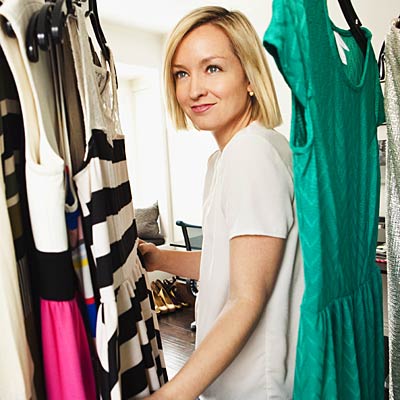
Anti-anti-aging
by Amanda MacMillan
Your choice of clothing and
cosmetics can highlight your sense of style, compliment your best
features, and keep you looking fresh and full of life. But sometimes
these decisions can backfire: an ill-fitting dress that stretches and
sags in all the wrong places, or a shade of makeup that accentuates fine
lines and wrinkles. Women don't always update their fashion and beauty
routines as they get older, says Los Angeles-based celebrity makeup
artist Jan Ping,
but they should; otherwise, the same products and pieces that once
worked so well for them could suddenly give away their real age—or
worse, make them look even older than they really are. Here are 18
common beauty blunders, and anti-aging advice from the pros on how to
fix them.
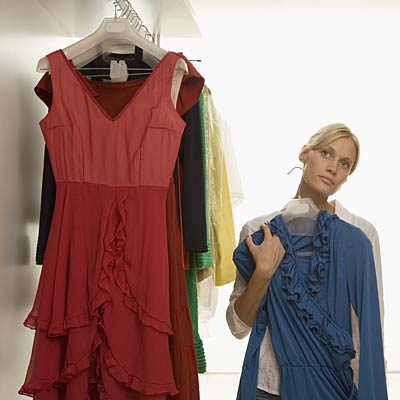
Dressing too trendy
Unless you're on an unlimited budget, steer clear of fashions that seem very in-the-moment, advises New York City-based celebrity wardrobe stylist Alana Kelen; you won't be able to wear them for very long before they (and you) look dated and behind the times. "Rather than invest in pieces that may be passé by next season, stick to classic, sophisticated items that will stand the test of time," she says. That doesn't mean you can't infuse some edgier styles into your wardrobe, though. "Look to trends that are here to stay: leather, military, dark florals, plaid, and slimmer cuts such as tailored pants and pencil skirts."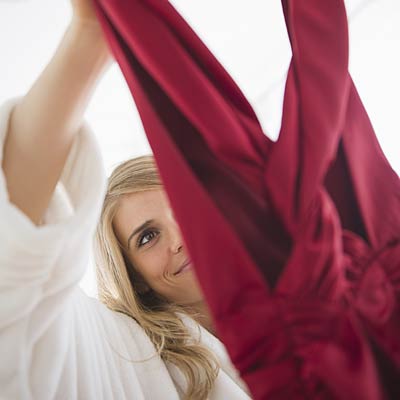
Being nostalgic about clothes
"When giving private clients a fashion overhaul, I find they tend to hang onto things that just don't fit right," says Kelen. "Some are way too big and boxy; some are so small you can barely button them—but they keep them, either because they spent a lot of money on them or because they have sentimental value." Consider having these pieces tailored, if possible, so you can continue to wear them with confidence, she suggest. Otherwise, donate them, sell them to a second-hand store, or take them out of your closet and store them as memories—not as part of your current wardrobe.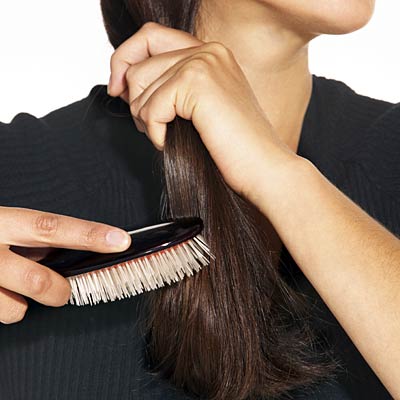
Wearing your hair too long
Many women associate flowing locks with youth, and short styles—i.e. "mom haircuts"—with maturity. "But as you get older and begin to lose fat in your face, really long, straight hair can actually make you look more drawn," says New York City-based dermatologist and cosmetic surgeon Melanie Grossman, MD. Choosing a cut with face-framing layers and lots of body, on the other hand, can help your face appear rounder and more youthful.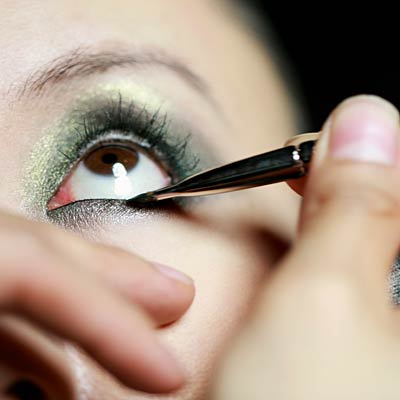
Using heavy black eye liner
Dark, dramatic eyes can be
tricky to pull off, says Ping, and they tend to be less and less
flattering on most women as they age. "Our eyelashes thin out as we get
older, and women sometimes try to overcompensate for that with lots of
black makeup," she says. "All that does, though, is draw attention to
the wrinkles around your eyes." Instead of a black liner, choose a dark
brown or grey, she says—and remember that less is more. Skip liquid
liners, too, which can be too heavy, and opt for a soft, easy-to-apply
pencil.
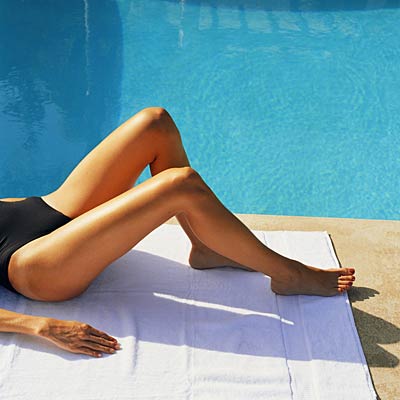
Getting a tan
Spending time in the sun may
give you a temporary youthful glow, but in reality, it's a fast track to
premature aging, says Dr. Grossman. Ultraviolet rays from the sun wreak
havoc at the cellular level, breaking down the collagen fibers that
help skin retain its elasticity and supple appearance; they can also
cause pigment changes and permanent dark spots. Research shows that this
type of damage can begin after just a few days of exposure without
protection, Dr. Grossman adds, so it's important to wear a
broad-spectrum sunscreen every day, without exception. One way you won't
forget? Look for a daily moisturizer with built-in SPF.
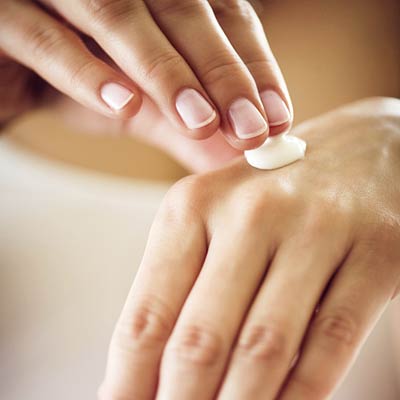
Ignoring your hands and chest
Of course, even if you're
wearing sunscreen on your face every day, chances are you may be
neglecting other parts of your body. "Your hands, neck, and chest are
also exposed to sun on a daily basis, and women tend to forget about
protecting them the same way they do their face," says Dr. Grossman.
"But these are the areas we tend to see a lot of brown spots and
wrinkles—they can be a dead giveaway, even if your face looks really
youthful." (In fact, a 2013 Australian study found that women who used
sunscreen on their hands every day showed no signs of aging after four
years.) Along with a regular SPF, a daily moisturizer can also keep skin
looking and feeling smooth and baby soft.
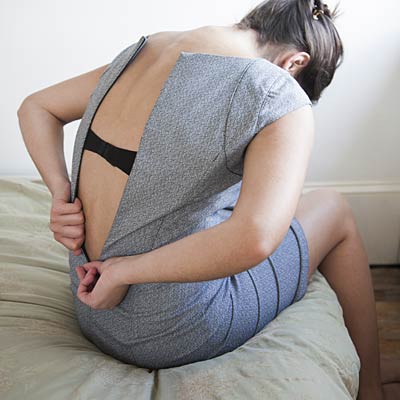
Going too tight (or too loose)
Anything in the extreme—whether
it's too tight, too loose, too short, too long—can draw negative
attention, says psychologist Jennifer Baumgartner, author of You Are What You Wear ($10-11; amazon.com),
especially if you're visibly uncomfortable or self-conscious while
you're wearing it. "If you're 80 years old and you're rocking a
skin-tight leopard mini skirt and you feel great, then you'll look great
too," she says. "But if you're wearing it because you think it will
make you look younger—and you're ignoring the fact that you're bulging
out of it—then that's all anyone else is going to see." But don't go too
far in the other direction, either.
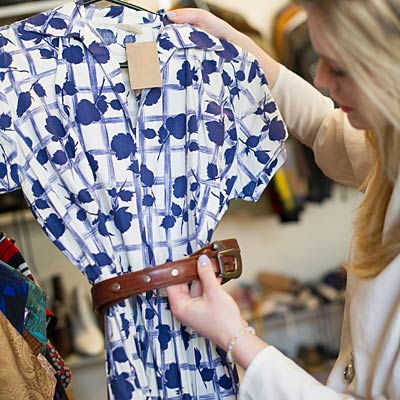
Not wearing a belt
"For looser silhouettes that may be comfortable but not ultra flattering, my rule of thumb is to add a belt," says Kelen. "Choose one that matches for an overall slimmer picture, or one with a contrasting color to really highlight a slim waist and hourglass figure." During colder months, Kelen even uses this trick with coats: "It's a great way not to get lost in the heavier material of outerwear," she says. "Seek out a thicker, wider belt that is substantial enough for the bulk."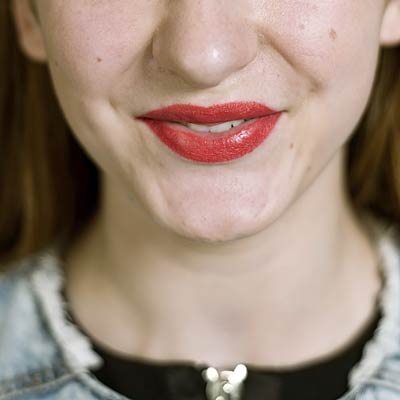
Wearing dark lipstick
A well-defined pout can help
define your features, but one that's too dark (or too bright) may just
draw attention to laugh lines, says Ping. "I like to start with lip
liner, and use a nice neutral shade that's just a bit bolder than the
person's natural lip color," she says. "I line the lips and then I fill
in the rest with a tinted gloss. A lot of women are really stuck on the
idea of always using heavy lipstick, but I think that gloss gives a
softer, more youthful appearance."
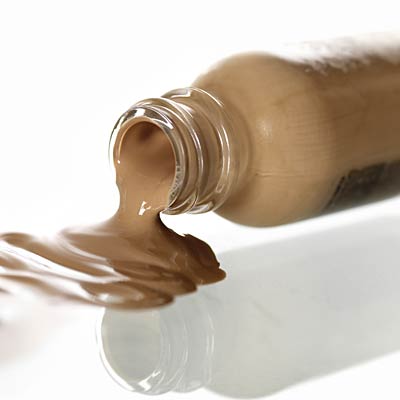
Using too much (or the wrong) foundation
The solution to fine lines
isn't always to cover them with loads of makeup, says Ping; in fact, if
you use too much foundation you'll risk it settling into those creases,
only making them more noticeable. "The key is to spot correct only where
you need it, with a liquid or cream foundation, concealer, or even just
a tinted moisturizer." (Powder-based formulas can cake in creases, she
says, and they can make dry skin—a common problem as you age—look
flaky.) Also, be sure your foundation matches your skin tone, which can
also change as you get older. "A lot of women use the same color
forever, but you should really reevaluate every few years to see if it's
still the best fit."
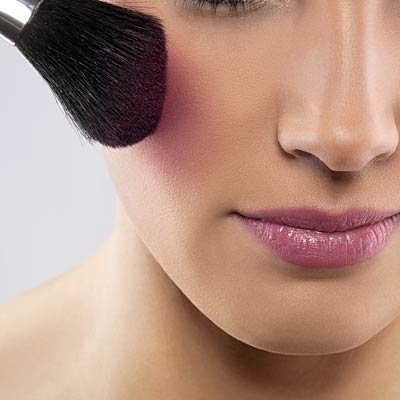
Going rogue with rouge
Too much blush doesn't just look bad—it can really label you as an "old lady," says Ping. "There was a certain era when more was better when it came to blush, and you can still spot those women today because they're still piling it on." For a more natural looking glow, she recommends applying bronzer to your hairline and jawline, then rubbing just a tiny amount of cream blush (again, powder can flake and settle into creases) into the apples of your cheeks.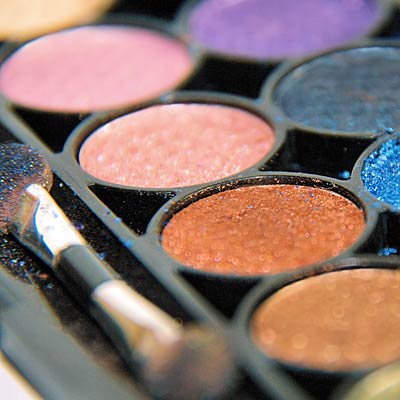
Wearing too much shimmer
Stay away from "frost" or
"iridescent" eye shadow if your goal is to look younger, says Ping;
these light-reflecting formulas actually accentuate fine lines and
creases around the eye. Instead, apply a matte shadow to your entire lid
and—if you do want a bit of shimmer—apply just a touch to the inner
corners.
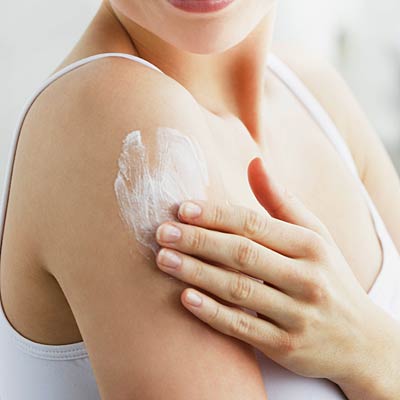
Not using the right moisturizer
"Our skin tends to get drier as
we get older, and moisturizer becomes more and more important," says
Dr. Grossman. "Unfortunately, I think that a lot of people aren't using
the right kind or in the right way." For your face, choose a
lightweight, non-comedogenic formula (which means it won't clog pores
the way a lot of body lotions can), and apply it immediately after
washing or taking a shower. Without a base of hydrated, healthy skin,
Grossman adds, makeup can only do so much—and it may even make dry,
flaky skin look worse.
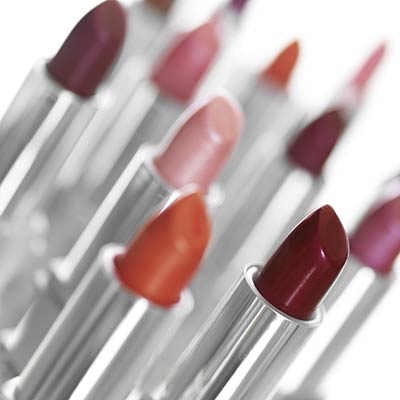
Staying neutral
So now you know that too much
eye or lip color can make you look older—but so can not enough,
according to a 2013 study from Gettysburg University. When volunteers
were asked to compare pictures of human faces, they rated those with
more facial contrast as looking younger. Darker lips, eyes, and eyebrows
seemed to make the most difference, say the researchers, possibly
because lips tend to get thinner and eyebrows tend to turn gray as a
person ages. A good makeup application will pump up a person's natural
contrast, says Ping, darkening the eyes and lips (and filling in thinned
out eyebrows) without being too obvious or over-the-top.

Dressing too young
Wearing something that your
daughter (or granddaughter) might pick out? Chances are, people will
notice—but not the way you want them to. "In our society, we expect to
see certain trends from certain age groups," says Baumgartner. "If
you're a 50-year-old woman and you dress like a 9-year-old or a
19-year-old, it's not going to gel with our expectations. The
incongruence can be pretty harsh, and it can accentuate your age rather
than hide it."

Mismatching tops and bottoms
Wearing styles that don't work
well together is unflattering for all ages, and can add years to an
otherwise youthful appearance, says Kelen. "A great rule of thumb is
that if you're wearing a skinny silhouette on the bottom, choose a more
forgiving, flowy piece on top. Or flip it: If wearing a tighter top, add
a looser, flared skirt or a wide-leg pant to balance out the
proportions." Not only does this strategy let you show off your best
assets, but it can also hide the trouble spots you're not totally
confident about.
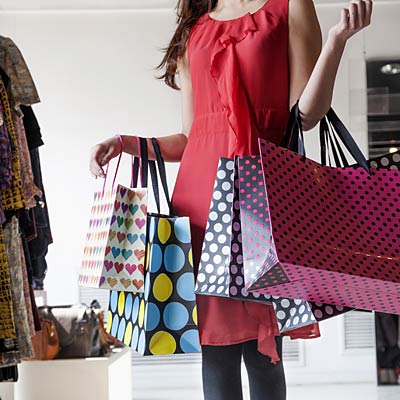
Falling for color trends
"This coming season, pastels
will be everywhere—but unless they are a good fit for your complexion,
they can make you look washed out and tired," says Kelen. Instead of
banking on fads that will come and go, curate your wardrobe to have a
strong base of classic colors like black, navy, gray, olive, camel, and
white. "Use accent colors—like red, purple, cobalt, and emerald—to fill
it out and add a punch," she suggests. "Add a perfect pastel accessory,
for example, like a pretty tote, statement earrings, or pointy-toe
pumps."
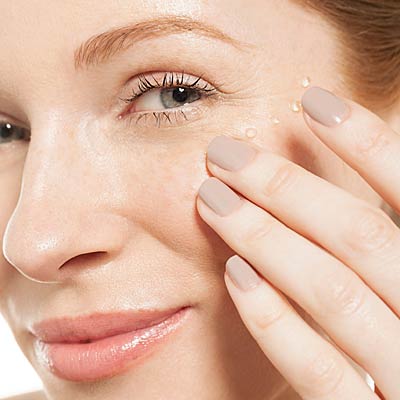
Abusing your eyes
The skin around your eyes is very sensitive, but it's also the skin women tend to be harshest on, says Dr. Grossman. "We apply all kinds of creams and cosmetics there, but you can do more harm than good if you're too aggressive." Too much rubbing, poking, and prodding can not only damage the skin, she adds, but it can cause red, puffy eyes, as well—not a good look at any age. Always remove eye makeup at the end of the day (sleeping in it can cause irritation and infection), but use a gentle cleanser and a soft towel or cotton swab; avoid scrubbing too hard or using a rough washcloth.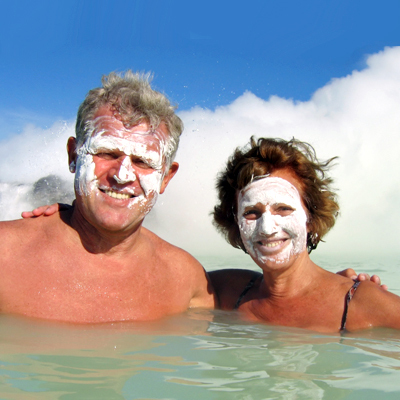
src of Health

ConversionConversion EmoticonEmoticon